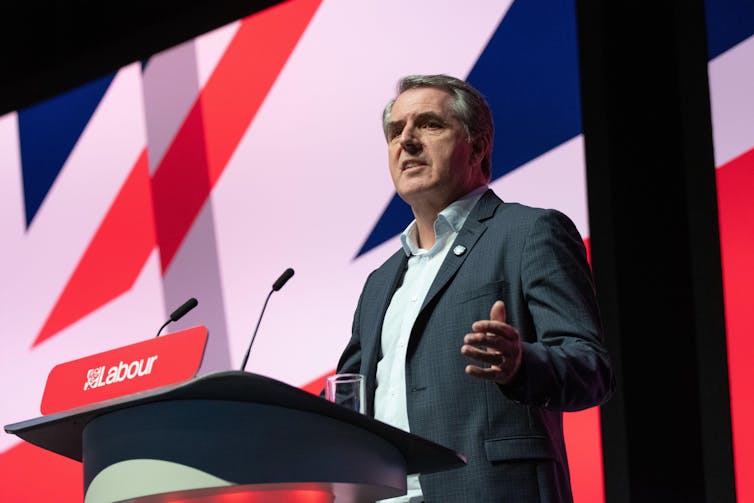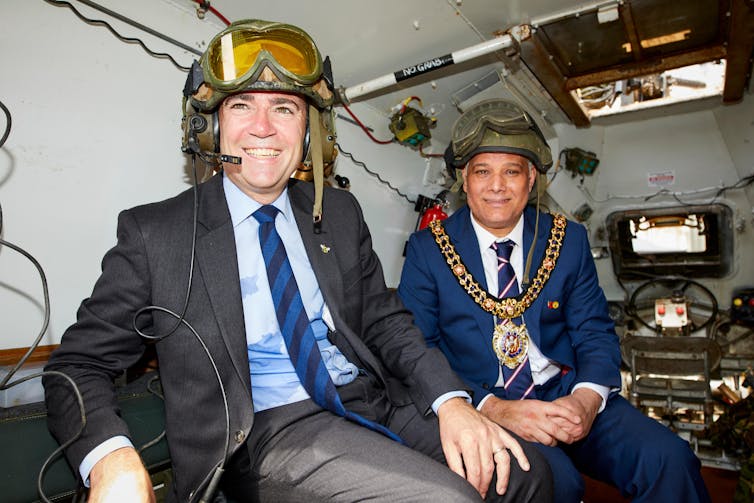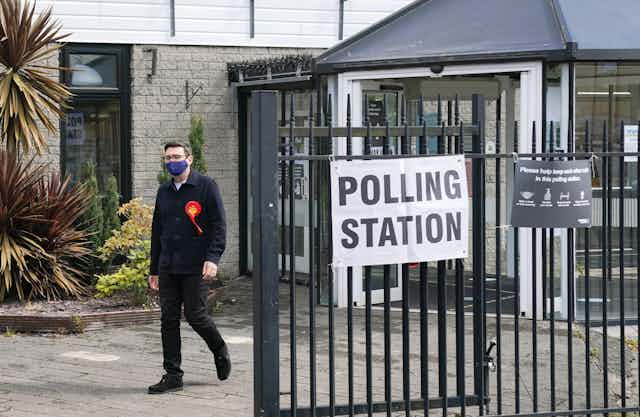The word “mayor”, in the English governance landscape, refers to many different roles. Until the turn of the 21st century, it mostly described non-partisan ceremonial leaders of towns and boroughs in England and Wales, most often elected by councillors. The further ceremonial title of Lord Mayor was conferred by royal letters patent on the leaders of the nation’s biggest cities.
Directly elected mayors, by contrast, are a new phenomenon. The first, introduced in 2000, was the Mayor of London – currently Sadiq Khan – who is responsible for the Greater London Authority, a collection of 19 local authorities.
Two distinct types of elected mayor have since emerged. Local authority mayors, like Marvin Rees in Bristol and Paul Dennett in Salford, are put in place by voters within the boundaries of a single local authority.
Metro mayors– of which there are now nine – are voted in by residents of all the local authorities of a combined authority. In May 2021, elections for metro mayors saw a reported 10 million people around England head to the polls in Cambridgeshire and Peterborough, Greater Manchester, Liverpool City Region, Tees Valley, West of England, West Midlands, West Yorkshire and Greater London.
Our new book, Devolution in Greater Manchester and Liverpool City Region, asks if the metro mayors amount to a constitutional revolution in English local government or a limited and temporary experiment. Comparing Greater Manchester’s Andy Burnham and Steve Rotheram, Mayor of the Liverpool City Region, we have found, through interviews with local political leaders, that by working with and through their combined authorities, metro mayors can make a notable difference to their local areas.

Personality matters
Metro mayors deploy considerable leadership skills and convening powers. During the pandemic, Burnham very publicly challenged the government’s lockdown policies. Along with his ten council leaders, he criticised the imposition of tier-three restrictions as discriminatory.
Working with the council leaders or directly elected mayor of each local authority in the region, no matter their political allegiance, is crucial to metro mayors’ success. Local authority leaders can veto metro-mayoral policies – as happened when Stockport withdrew its support in December 2020 for Burnham’s plans to allow green-belt construction across Greater Manchester.
One Greater Manchester council leader we interviewed put it bluntly:
We have to work with a mayor we did not want while he has to work with a cabinet he did not choose.
Working with with central government and its various departments is crucial too. As are relationships with the political parties and interest groups and, ultimately, the electorate – none of which are static. These relationships both enable and constrain the metro mayors who must engage in policy areas that are thick with existing actors and strategies.
Burnham has demonstrated his worth to voters through returning the bus network to public control, with Wigan and Bolton being the first to benefit, from September 2023. All boroughs in Greater Manchester are to follow suit, by January 2025. Our interviews with key political, civic and business leaders in Greater Manchester emphasised that doing so was Burnham’s primary task and the reason he was elected. For most residents, buses are the essential form of transport and public control will mean cheaper, more accessible and a more reliable bus network.
Similarly, Rotheram was crucial in advocating for the Shakespeare North Playhouse in Knowsley, a deprived borough of the Merseyside region. The idea was that this would deliver economic benefits through a growth in tourism, while extending cultural opportunities beyond Liverpool itself, to the outer boroughs.
These achievements have not been easy to come by, however. Although metro mayors hold devolved powers distinct from those of local authorities, these do not automatically translate into the ability to get things done.

Transactional politics
The powers of the metro mayor and those of the combined authority are set out in devolution deals negotiated with central government, which is not something local authority mayors have to do. These powers generally relate to economic development, planning, transport and adult skills.
Quite how though varies depending on the combined authority. Greater Manchester was the only combined authority to have health and social care included in its first devolution deal in 2014. Liverpool City Region, meanwhile, was unique in prioritising culture in its original devolution agreement.
These deals, though, are simply the starting point. In February 2022, the secretary of state for levelling up, housing and communities, Michael Gove, singled out the Liverpool City Region and Greater Manchester as exemplifying the difference devolution can make to a region.
However, the initiatives Gove highlighted – Burnham’s rough sleeping campaign, A Bed Every Night, and Rotheram’s pandemic support for local voluntary organisations, LCR Cares initiative – were in policy areas to which the devolution deals had afforded neither power nor budget. But Burnham and Rotheram went ahead regardless, effectively expanding their role beyond what the government’s deal had laid out.
Such metro-mayoral wins might be categorised as micro-achievements. But even small changes matter.
Lack of power
Burnham made young people his priority right from the start of his term. He has developed the Opportunity Pass, to provide free bus travel for 16-18 year olds, along with free access to various culture and leisure facilities.
Since November 2018, Liverpool too has provided free bus travel, for apprentices aged 19-24. From July 2019, they have enjoyed half-price rail travel.
But our interviewees expressed frustration at setbacks related to a lack of power and resources which have made policy wins hard to achieve. Like elected local authority mayors, metro mayors have had to reckon with ever deepening austerity cuts to public spending – of which local councils have borne the brunt. The subsequent cost of the pandemic has only made things worse.
On the question of HS2, the power that central government retains has been evident. The underground station at Manchester Piccadilly that Greater Manchester wanted to use to accommodate the high speed rail line was dismissed by Whitehall in favour of extending the existing surface station. This saw Manchester Evening News reporter Charlotte Cox accuse the government of “doing it on the cheap”. She highlighted the local council’s analysis showing that this would “rob the region’s economy of £333 million a year by 2050”.
Local councils, whatever model of governance they use, can marry statutory authority with democratic legitimacy – a potent combination. By contrast, metro mayors enjoy, as yet, fewer statutory powers. But when they’re willing to advocate for their city-region – and persist in their demands of central government – they really can make things happen.

